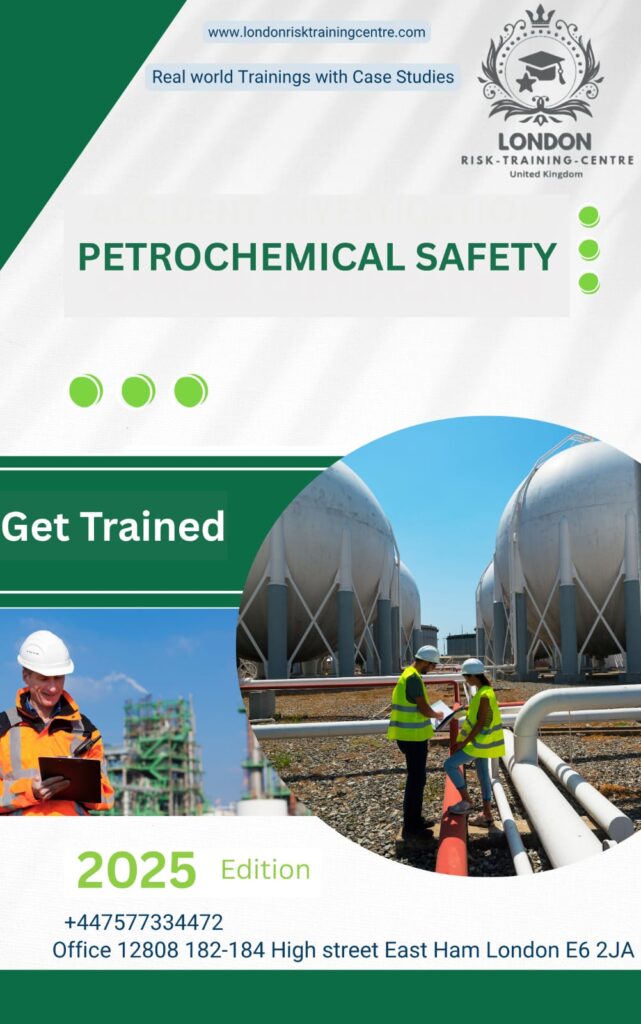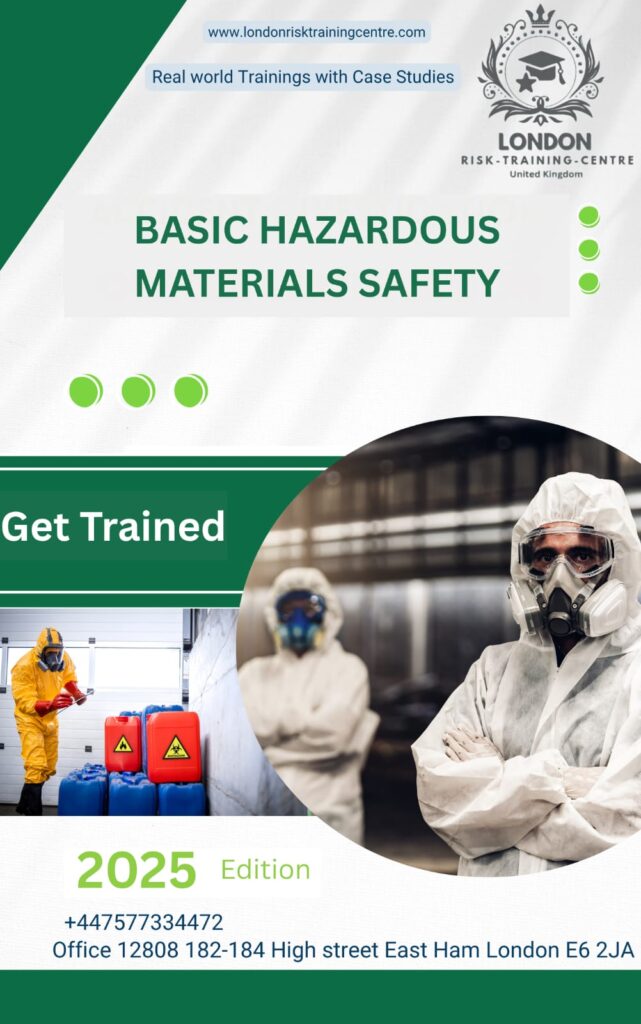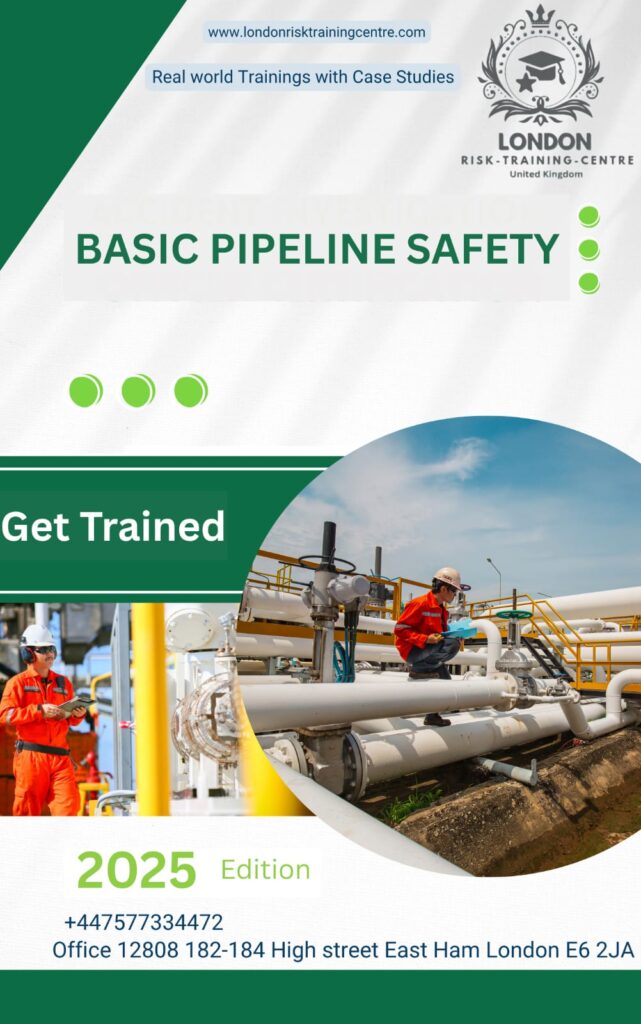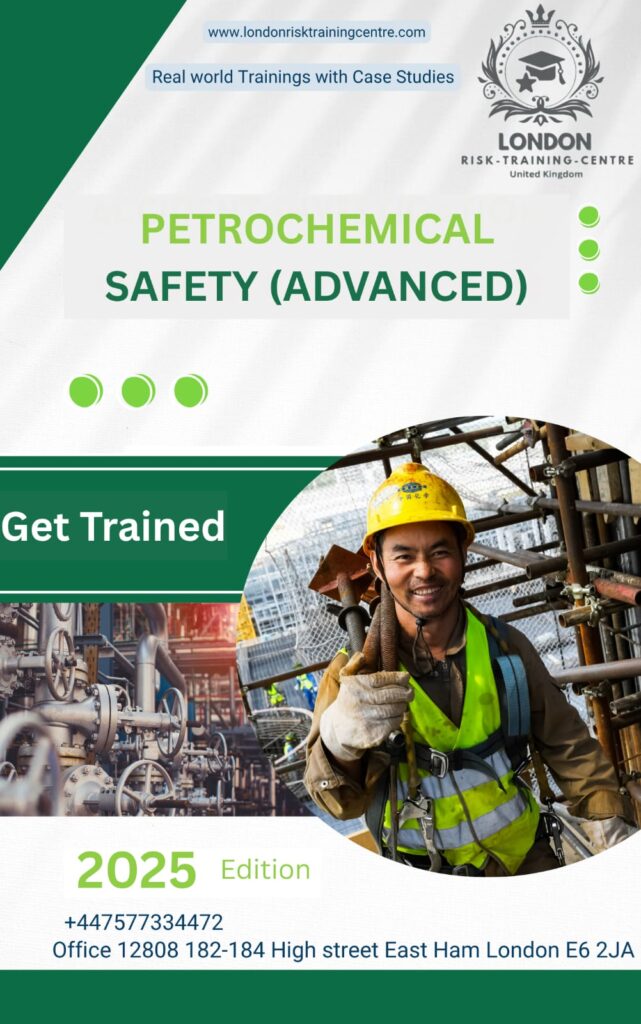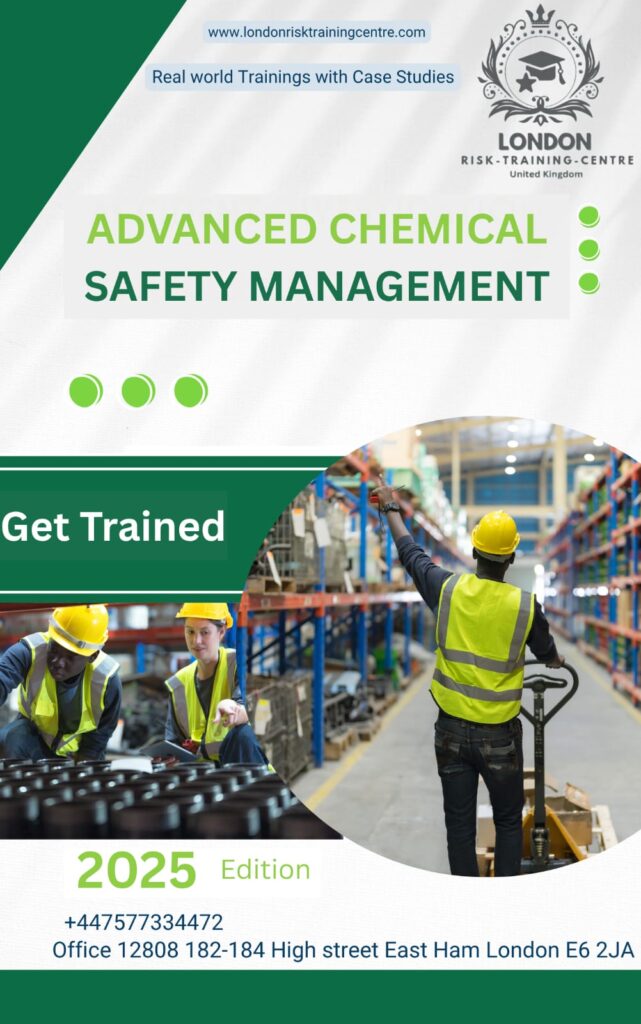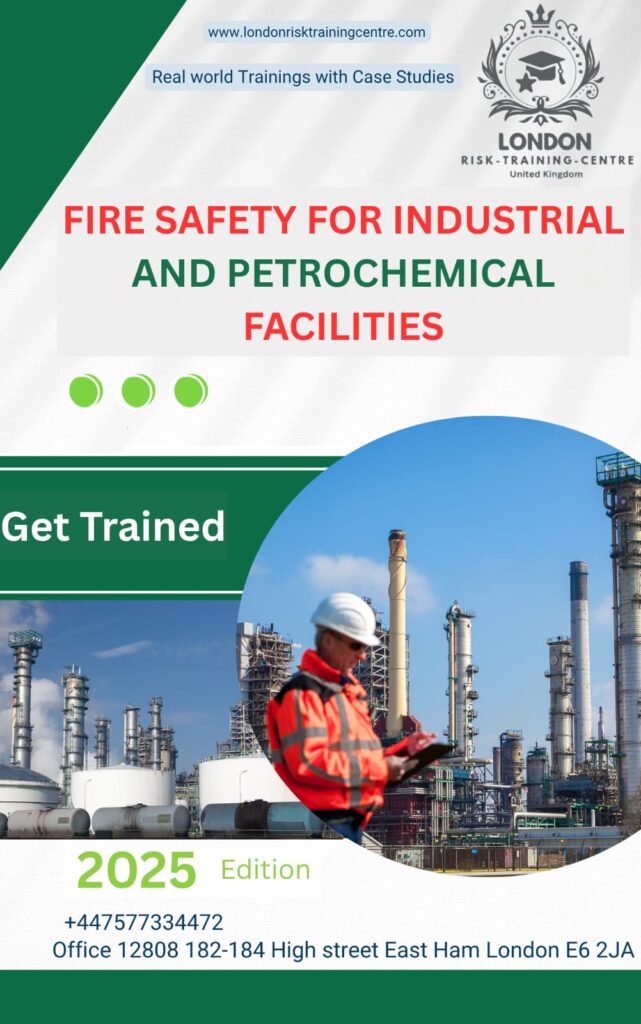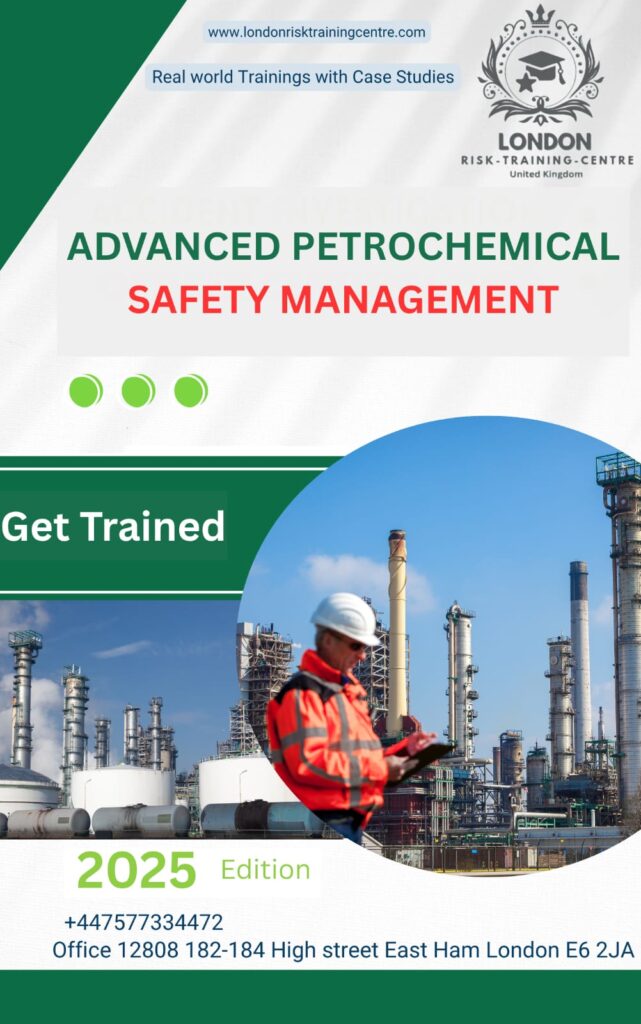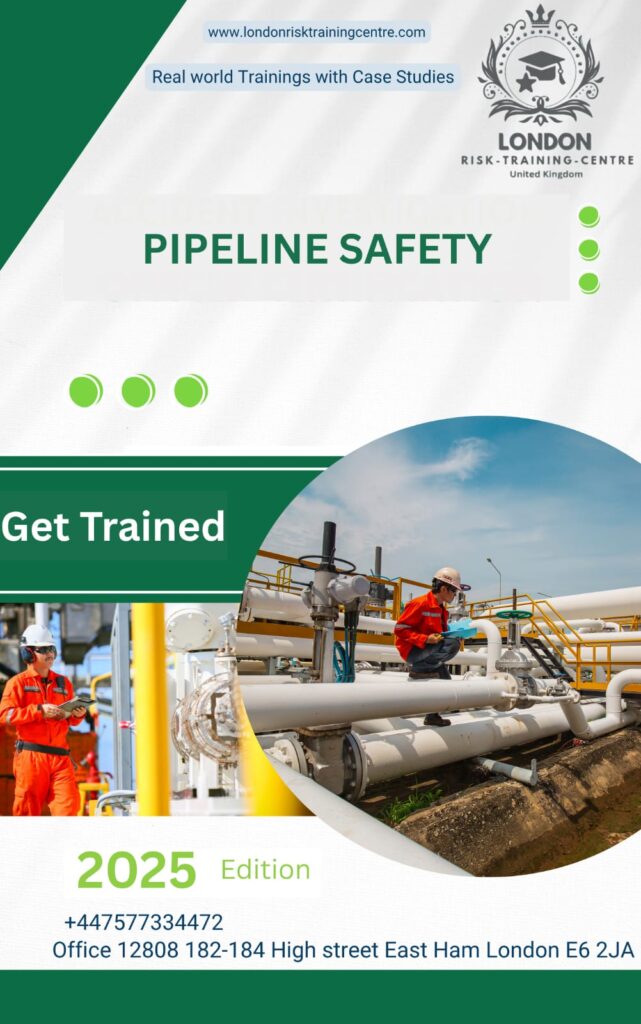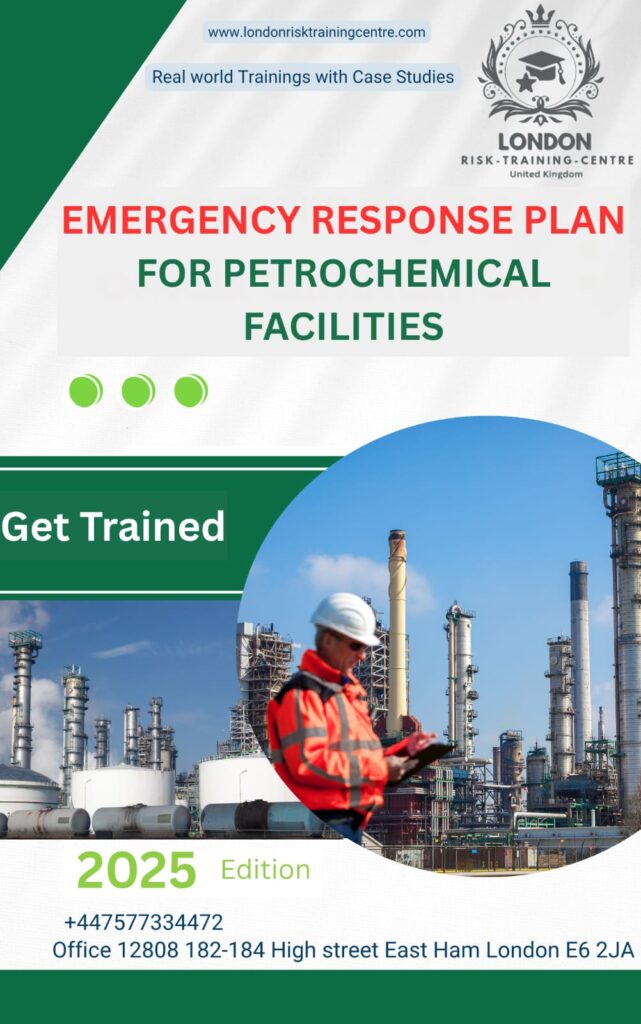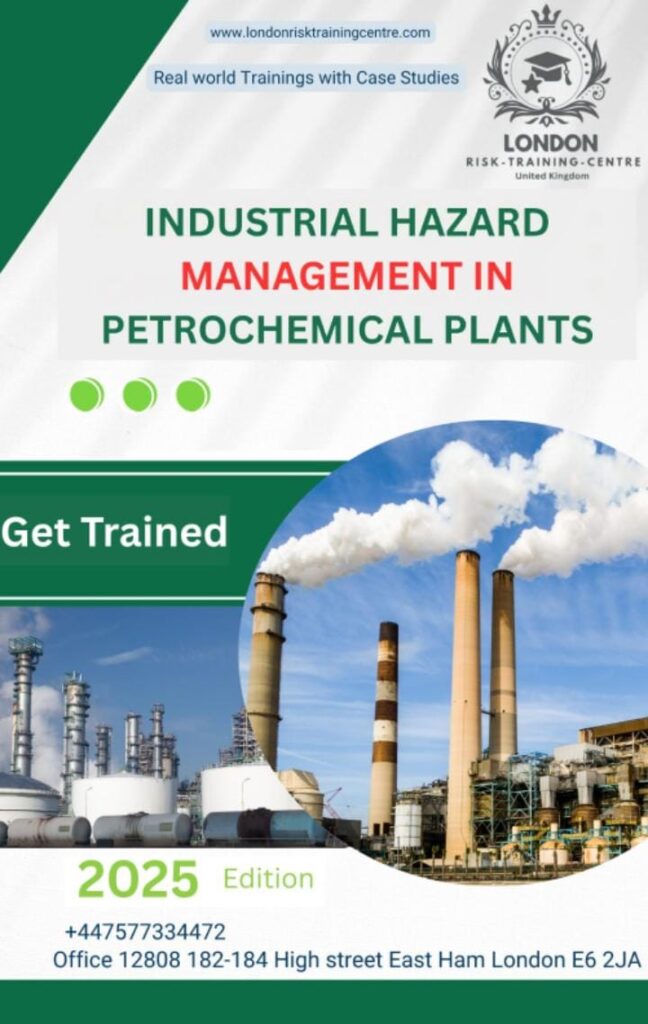The London Risk Training Centre is proud to offer a comprehensive suite of Tier 1, Tier 2, and Tier 3 certifications and training programs focused on petrochemical and industrial safety. These meticulously designed programs are developed by London Risk Training Centre Ltd., ensuring that participants receive the highest quality education and training in safety standards relevant to the petrochemical industry. Aimed at enhancing knowledge and skills, the training covers essential safety protocols, risk assessment, and emergency response strategies, preparing individuals for a successful and safe career in this critical field. With experienced instructors and a commitment to excellence, the London Risk Training Centre is dedicated to fostering a safe work environment and promoting best practices in industrial safety.
Level 1
Introductory Level
Petrochemical Safety
This introductory course provides a foundational understanding of safety hazards and operational risks in the petrochemical industry. Participants will explore key safety concepts such as flammable substances, chemical exposure, static discharge, and basic process safety. The course also covers personal protective equipment (PPE), signage, and entry-level safety protocols for storage and processing areas. Ideal for new plant workers, technicians, and support staff, this course ensures a strong safety baseline in high-risk environments.
Basic Hazardous Materials Safety
Designed for individuals who handle or work near chemicals, this course introduces safe practices for identifying, storing, transporting, and disposing of hazardous materials. It includes basics of chemical classification, Safety Data Sheets (SDS), labeling (GHS), and emergency response for spills or leaks. This training is essential for warehouse staff, maintenance teams, and any employees exposed to chemical materials in industrial settings.
Basic Pipeline Safety
This course covers the fundamental safety practices for working around or operating pipelines in petrochemical and industrial contexts. Participants learn about pressure risks, pipeline markings, right-of-way protocols, valve operations, and basic leak detection. Ideal for entry-level operators and site workers, it promotes awareness and prevention of common pipeline-related incidents.
Level 2
Intermediate Level
Petrochemical Safety (Advanced)
Building on the introductory course, this program dives deeper into hazard analysis, chemical process safety, and high-risk activity management. Topics include hot work permitting, tank safety, gas testing, static grounding, and confined space procedures. It also introduces international regulatory frameworks such as OSHA PSM and API RP standards. Suitable for safety supervisors and senior plant personnel, this course enhances the ability to manage complex risks in operational zones.
Advanced Chemical Safety Management Certification
This course equips participants with advanced techniques for handling, storing, and disposing of industrial chemicals safely and in compliance with regulatory standards. It covers risk assessments, spill control systems, chemical compatibility, and engineering controls. Participants will also learn about process safety documentation, incident investigation, and regulatory audit preparedness. It’s ideal for chemical safety officers, quality control supervisors, and compliance managers.
Fire Safety For Industrial and Petrochemical Facilities
This targeted course focuses on fire prevention, detection, and suppression systems specific to refineries, processing plants, and petrochemical storage areas. Topics include flammable liquid handling, fixed firefighting systems (foam, sprinklers, deluge), and emergency shutdown procedures. Practical modules on fire drills, response coordination, and firefighting equipment use are included. It’s essential for safety officers, emergency teams, and plant supervisors in high-risk fire zones
Advanced Petrochemical Safety Management
This advanced-level course provides comprehensive training in managing the full scope of safety operations in petrochemical facilities. It includes process hazard analysis (PHA), Layers of Protection Analysis (LOPA), SIL assessments, safety instrumented systems (SIS), and crisis management planning. Participants learn how to lead safety audits, manage regulatory compliance, and oversee safety management systems. This is ideal for plant managers, lead HSE professionals, and engineering supervisors.
Pipeline Safety Certification
This certification course delivers in-depth knowledge of pipeline systems, focusing on design safety, integrity management, leak detection, cathodic protection, and emergency shutdown mechanisms. It also covers regulatory frameworks (e.g., API 1160, PHMSA standards), risk assessments, and environmental protection strategies. Aimed at pipeline operators, maintenance leads, and infrastructure safety managers, this course prepares participants to ensure long-term pipeline safety and compliance.
Emergency response Plan For Petrochemical Facilities
This course trains participants in the development and implementation of comprehensive emergency response plans tailored to the petrochemical industry. It includes scenario planning for fires, explosions, toxic releases, and mechanical failures. Participants learn about command structure (ICS), mutual aid coordination, alarm systems, and post-incident recovery. Recommended for safety coordinators, operations managers, and ERT leaders, the course ensures preparedness in high-risk industrial zones
Industrial Hazard Management in Petrochemical Plants
This course focuses on recognizing, assessing, and mitigating complex industrial hazards such as high-pressure systems, volatile chemicals, confined spaces, and operational failures. Participants will learn to apply risk matrices, control measures, and safety case development strategies. It also explores advanced hazard identification tools like HAZOP, bowtie analysis, and FMEA. This training is ideal for plant engineers, process safety experts, and high-level HSE professionals
